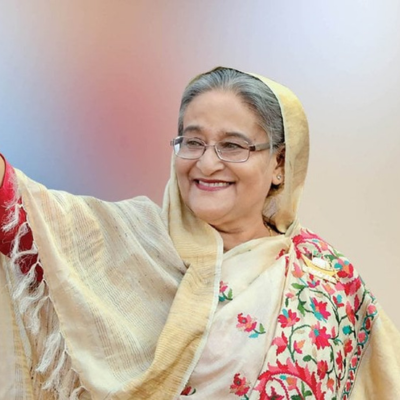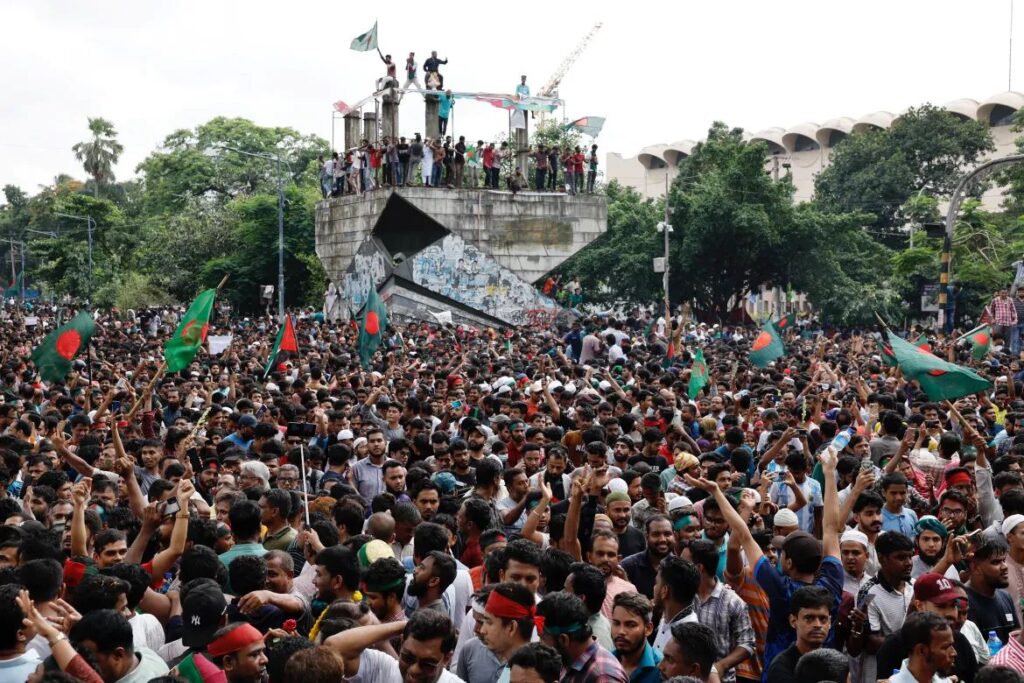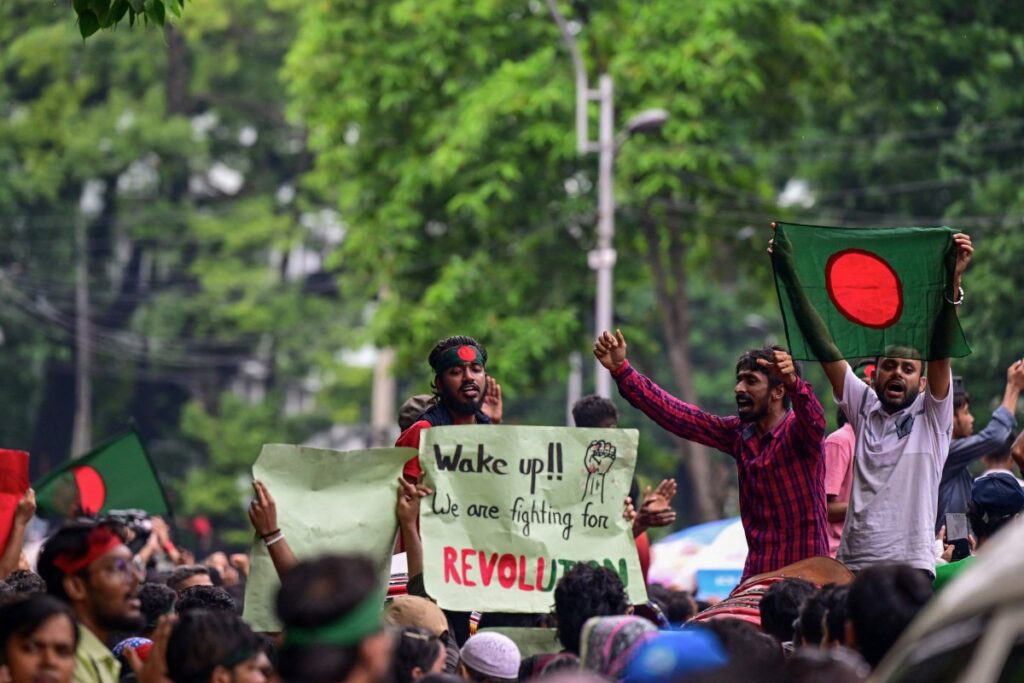
In a dramatic turn of events, Bangladesh’s Prime Minister Sheikh Hasina Wajid resigned from her position on Monday and fled the country following weeks of intense and violent protests. The news of her departure has thrown the nation into a state of uncertainty, with the Bangladeshi army expected to step in to restore order.
Sheikh Hasina Escape
The announcement of Hasina’s escape quickly spread across Dhaka, the capital city, as protesters demanding her resignation took to the streets in celebration. Sheikh Hasina, the daughter of Bangladesh’s founding father Sheikh Mujibur Rahman, has been a prominent political figure in the country for decades, ruling for 20 years. As news of her flight became clear, jubilant crowds waved flags and danced in the streets. In a symbolic display of victory, some even danced on tanks deployed to maintain peace.

The Bangladeshi army believed to have facilitated Hasina’s safe departure, has reiterated its stance of standing with the people. However, as political tensions reached a boiling point, the army had no choice but to intervene. This is not the first time the military has stepped in during political crises; notably, in 2007, it took control for two years amidst a standoff between Hasina and her rival Khaleda Zia.

While democracy was restored and Sheikh Hasina was re-elected, holding power in various forms for the past 15 years, the recent surge in protests has challenged her leadership. Many had expected her son, Sajeeb Wazed Joy, to assume leadership of the Awami League party. However, Joy has urged the army not to seize power during this volatile transition period.
The immediate cause of the widespread unrest can be traced to recent changes in civil service quotas, which sparked significant anger and led to massive demonstrations. The scale of the violence and the intensity of the protests have been unprecedented since the country’s founding 50 years ago.
In response to the escalating protests, the army imposed a curfew, set up barriers, and patrolled the streets with tanks and armored vehicles. Despite these measures, protesters remained undeterred and demonstrated in large numbers.

The government has also imposed strict restrictions on internet access to control the flow of information and curb the unrest. Additionally, the country saw a shutdown of more than 3,500 factories that supply its economically crucial garment industry, further highlighting the severity of the situation.
After her resignation, Sheikh Hasina sought refuge in the Indian city of Agartala. As the nation awaits further developments, the army chief is expected to address the country regarding an interim setup. The immediate future of Bangladesh’s political landscape remains uncertain, but what is clear is that the departure of Sheikh Hasina marks a significant turning point in the nation’s history.
This period of transition will undoubtedly shape the future of Bangladesh, and the actions taken in the coming days and weeks will be critical in determining the path forward for the country and its people.
